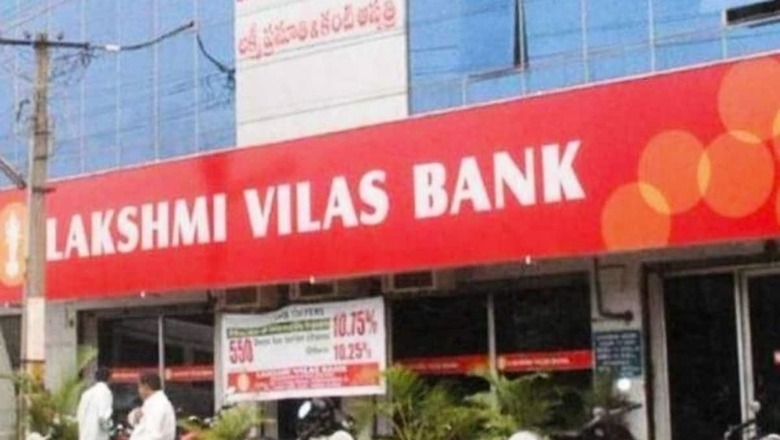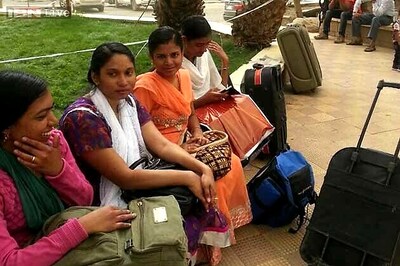
views
Immediately after placing loss-making private bank Lakshmi Vilas Bank (LVB) under moratorium and superseding its Board of Directors, the Reserve Bank of India (RBI) announced a draft scheme for its amalgamation with DBS Bank India Ltd (DBIL).
RBI has placed LVB under a moratorium for 30 days that would end on December 16, according to statements from the regulator. As part of the moratorium, the regulator has capped deposit withdrawals by customers to Rs 25,000. Borrowers can withdraw above Rs 25,000 only for unforeseen expenses like medical treatment, education, etc.
The combined balance sheet of DBIL would remain healthy after the proposed amalgamation, with Capital to Risk (Weighted ) Assets Ratio (CRAR) at 12.51 per cent and Common Equity Tier 1 (CET-1) capital at 9.61 per cent, without taking into account the infusion of additional capital.
DBIL is a wholly-owned subsidiary of DBS Bank Ltd, Singapore, which in turn is a subsidiary of Asia’s leading financial services group, DBS Group Holdings Limited and has the advantage of a strong parentage.
Lakshmi Vilas Bank saw a dramatic turn of events where its own shareholders voted against the appointment of seven of its independent directors, including the MD & CEO of the bank. This made the already deteriorating situation worse, given the bank’s already fragile financial state.
What does this mean?
This means Lakshmi Vilas Bank will not be allowed to make payments exceeding Rs 25,000 to any creditor without prior approval from the RBI during the time it is under moratorium. Which in this case, is for a month.
Why was the moratorium imposed?
According to the RBI, the decision to supersede the board was made owing to a serious deterioration in the financial position of the bank.
What happens now?
Shortly after announcing a moratorium on Lakshmi Vilas Bank, the RBI also unveiled DBI). Announcing this scheme of amalgamation, the RBI said DBIL will bring in additional capital of Rs2,500 crore upfront, to support credit growth of the merged entity.
Has this happened recently?
Yes. On March 5, 2020, a similar moratorium had been imposed on Yes Bank which was later rescued by an SBI-led consortium. Another example of the government stepping in, transpired in 2004 when the RBI had announced that crisis-ridden Global Trust Bank would be merged with the financially strong public sector Oriental Bank of Commerce.
The Reserve Bank of India has decided to supersede the board, what does this mean?
When the RBI decides to supersede the bank, this normally means that it intends to conduct a thorough investigation on what is going on at the bank, and an administrator will be appointed.
For Lakshmi Vilas Bank, TN Manoharan, former non-executive chairman of Canara Bank has been appointed as the administrator. This is similar to what happened on March 5, when RBI said it is superseding the board of troubled private sector lender Yes Bank with immediate effect. During that period it appointed former State of India CFO Prashant Kumar as the administrator.
Should customers be worried?
Not yet. The RBI has reassured, “the depositors of LVB that their interest will be fully protected and there is no need to panic”. It reiterated that the central bank has drawn up a scheme for LVB’s amalgamation with another bank
Read all the Latest News, Breaking News and Coronavirus News here


















Comments
0 comment